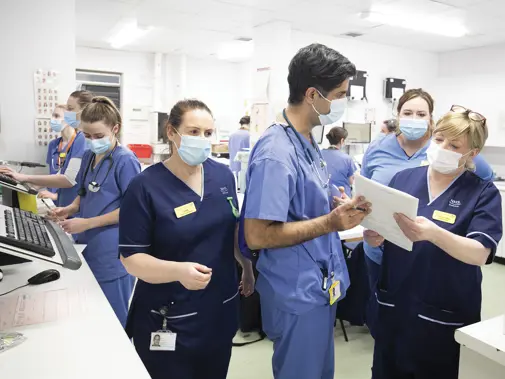Some of the great breakthroughs in science have been a result of international collaborations by the UK during the past decades.
Similarly, the UK has also benefitted from overseas students studying in its universities, in economic and cultural exchanges and in building long-term influence.
The UK Government, through its International Education Strategy and the Integrated Review of Security, Defence, Development and Foreign Policy, recognises the importance of international collaborations in increasing the UK research and educational role in the global south.
However, the cutting of UK overseas aid and the UKRI’s overseas development assistance funding will have far-reaching implications for this important source of influence. The Aid Budget has contributed greatly to the global south and allowed UK researchers and educators to play a crucial role in delivering improvements in many countries, particularly in Asia, sub-Saharan Africa and the Middle East.
One outcome has been the development of high-quality courses at degree level and other vital educational developments to the benefit of many countries.
UK supported research has created collaborative programmes into related health and other issues, with links between expertise in the UK and local capacity and leading to long-term programmes.
UK scientists and medical researchers placed in such centres have led to opportunities for local staff to train further in the UK to the mutual benefit of all.
It is, therefore, a real regret to read of the damaging effects that cutting this essential funding is likely to have, not only on the populations, research capacity building and economies in LMICs (Lower and Middle Income Countries) but also in the UK, where a range of important research programmes are in jeopardy.
Many of the findings arising from such research are applicable in the UK as well as LMICs, and so we underestimate the direct and indirect value of these investments in collaborative research at our peril.
The long-term networks of productive relationships lost to the UK will be immense and our economic competitors will use this as an opportunity to expand their influence to our detriment.
It is ironic that at a time when we are planning a strategic defence review to counter the risks from overseas aggression, we are announcing our withdrawal from collaborative projects across the globe, opening the space for other governments to step in and plant their influence and alliances.
In addition, the detrimental impact on the health and wellbeing of people in LMICs increases the risk of future hostility and unrest internationally, posing economic, security and health risks to the UK. Has the pandemic not demonstrated the little England mentality is hopelessly flawed?
A global Britain must invest in these programmes of research and education now and into the future to ensure we remain a leading player in research-capacity building and in this vitally important research work.
Peter Dangerfield is immediate-past chair of the BMA medical academic staff committee and member of the BMA international committee and Mark Gabbay is BMA medical academic and staff committee member, professor of general practice and director of NIHR ARC NWC.

